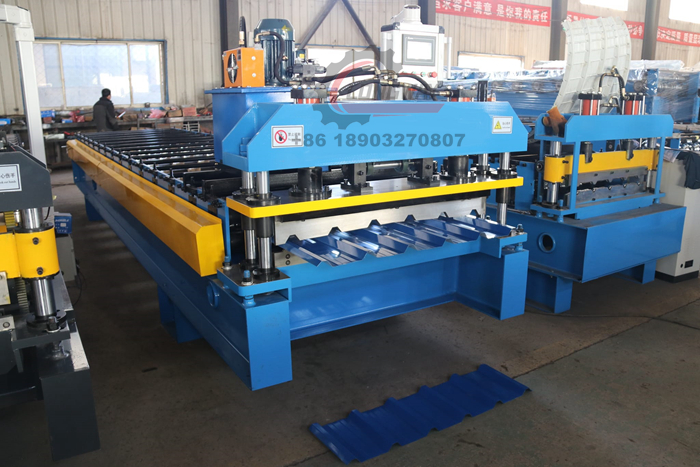Top Suppliers of Stud and Track Roll Forming Machines for Your Production Needs
The Essential Guide to Stud and Track Roll Forming Machine Suppliers
In the world of manufacturing and construction, the demand for efficient, high-quality components is ever-increasing. Among these, the stud and track roll forming machine has gained significant attention due to its ability to produce essential parts for building frameworks, particularly in wall systems, ceilings, and other structures. This article delves into the critical aspects of choosing a reliable stud and track roll forming machine supplier, the technology involved, and the benefits of using these machines.
Understanding Stud and Track Roll Forming Machines
Roll forming is a process used to shape metal into specific profiles continuously. A stud and track roll forming machine is designed specifically to produce high-strength metal studs and tracks from various materials, primarily galvanized steel. These components are crucial in providing a lightweight yet sturdy framework for drywall installation, particularly in commercial and residential construction.
The machines work by feeding metal coils into the forming system, where rollers shape the metal into the desired profiles. Once formed, the studs and tracks can be cut to length and packaged for delivery. With advancements in technology, modern roll forming machines provide precision, speed, and versatility, allowing manufacturers to produce a variety of profiles with minimal effort.
Key Factors to Consider When Choosing a Supplier
1. Experience and Reputation A supplier's experience in the industry is a significant indicator of their capability. Look for suppliers that have been in the business for several years with a proven track record. Reading customer testimonials and reviews can provide insights into their reliability and product quality.
2. Product Quality The durability and performance of roll forming machines depend on their construction quality. Choose suppliers who prioritize high-quality materials and adhere to strict manufacturing standards. Certifications such as ISO 9001 can be a good indicator of quality management.
3. Technology and Innovation The roll forming industry continuously evolves, with new technologies improving efficiency and performance. Opt for suppliers who stay updated with the latest advancements and offer modern, innovative machines capable of high-speed production and precision.
stud and track roll forming machine supplier

4. Customization Options Different projects may require unique specifications. A good supplier should offer customizable solutions, allowing customers to tailor machines to meet their specific needs and production goals.
5. Technical Support and Service Roll forming machines require maintenance and occasionally repairs. Choose a supplier that offers comprehensive customer support, including technical assistance, training, and readily available replacement parts. This ensures minimal downtime and smooth operation.
6. Price and Value While pricing is a crucial factor, it should not be the only consideration. Look for suppliers that provide a good balance between cost and value, ensuring that you receive high-quality machinery without compromising your budget.
Benefits of Partnering with a Reliable Supplier
Working with a reputable stud and track roll forming machine supplier offers several advantages
- High-Quality Products Reliable suppliers ensure their machines are built to last, providing consistent performance over time. - Efficiency Modern roll forming machines can significantly increase production speed and reduce labor costs, leading to higher profitability. - Flexibility With customizable options, businesses can adapt their production capabilities to meet changing market demands. - Expertise Established suppliers offer invaluable industry knowledge, helping customers make informed decisions about machinery and production techniques. - Networking Good suppliers often have extensive industry connections, which can lead to future collaboration opportunities.
Conclusion
In the competitive landscape of construction and manufacturing, the role of stud and track roll forming machines cannot be understated. Choosing the right supplier is critical to leveraging the full benefits of these advanced tools. By considering factors like experience, product quality, technology, customization, and support, businesses can ensure they invest in machines that enhance their production capabilities and drive success in their projects. Partnering with a trusted supplier is a strategic decision that can significantly impact the overall efficiency and quality of manufacturing processes.
-
Roof Panel Machines: Buying Guide, Types, and PricingNewsJul.04, 2025
-
Purlin Machines: Types, Features, and Pricing GuideNewsJul.04, 2025
-
Metal Embossing Machines: Types, Applications, and Buying GuideNewsJul.04, 2025
-
Gutter Machines: Features, Types, and Cost BreakdownNewsJul.04, 2025
-
Cut to Length Line: Overview, Equipment, and Buying GuideNewsJul.04, 2025
-
Auto Stacker: Features, Applications, and Cost BreakdownNewsJul.04, 2025
-
Top Drywall Profile Machine Models for SaleNewsJun.05, 2025








